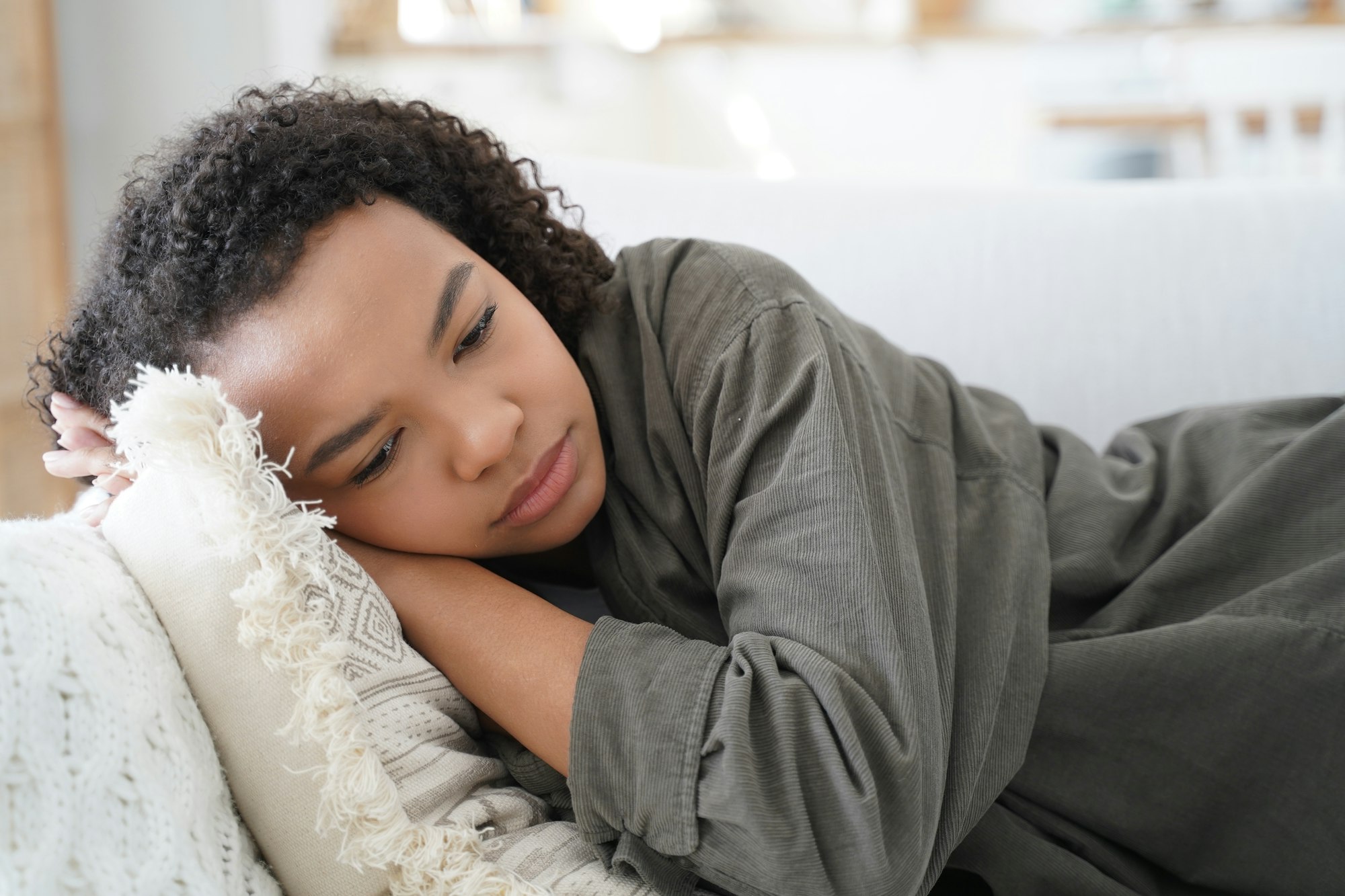Do you lie in bed for hours, unable to fall asleep, or struggle to stay asleep through the night?
You’re not alone. Many teens struggle with sleep problems, and while these issues can be related to diet and exercise, sleep environment, screen time or medical conditions, they are often linked to various mental health conditions. Let’s explore why this happens, how common sleep problems are among teens, and what you can do to help improve your sleep and overall well-being.
How common are sleep problems in teens?
Sleep problems can be incredibly common among teens. Around 70% of U.S. high school students report having trouble sleeping, according to the American Academy of Sleep Medicine. Sleep problems that teens face include:
- Trouble falling asleep
- Frequently waking up during the night
- Not being able to fall back to sleep after waking up too early
Several factors can contribute to your sleep problems. For many teens, these factors behind sleep problems can include:
- Busy schedules
- School demands
- Social activities
- Part-time jobs
- Technology and social media
However, sometimes sleep problems can be linked to deeper mental health challenges.
Effects of not getting enough sleep
Not getting enough sleep can have a significant impact on your body and mind. When you don’t get enough quality sleep, you may notice:
- Difficulty concentrating — Without getting enough sleep, focusing on tasks at school or remembering important information can be tough. This can affect your performance in class and your overall ability to learn.
- Mood changes — Sleep deprivation can make you feel overly irritable or moody. It can also increase feelings of sadness or anxiety, making it harder for you to handle everyday stress.
- Health problems — Chronic sleep troubles can cause you to experience physical health problems, such as:
- Headaches
- Weight gain
- A weakened immune system
- Behavioral issues — Not getting enough sleep can lead you to engage in risky behaviors or have problems with decision-making. These behavioral issues can affect your relationships with friends and family.
Getting a good night’s sleep benefits your overall health. It’s vital to address problems with your sleep as soon as they start.
Mental health conditions that can cause sleep issues
Several mental health conditions can affect your ability to get a good night’s sleep, including:
- Anxiety — Anxiety disorders are one of the most common causes of sleep problems in teens. When you struggle with anxiety, the anxious feelings can cause your mind to race with worries and fears. This struggle can make it hard for you to relax at night, lying in bed for hours without falling asleep. Approximately 32% of U.S. adolescents and teens aged 13 to 18 experience an anxiety disorder, according to the National Institute of Mental Health.
- Depression — Approximately 20% of U.S. adolescents aged 12 to 17 have experienced at least one major depressive episode, according to the National Institute of Mental Health. When you’re struggling with depression, you may:
- Have trouble falling asleep
- Wake up too early
- Sleep too much
- Attention-deficit/hyperactivity disorder (ADHD) — ADHD can cause teens to have trouble sleeping due to restlessness and an overactive mind. About 6 million children in the U.S. aged 3 to 17 have been diagnosed with ADHD, according to the Centers for Disease Control and Prevention (CDC).
- Post-traumatic stress disorder (PTSD) — If you’ve experienced a traumatic event, you may have nightmares or trouble sleeping due to hyperarousal or experiencing constant feelings of fear. An estimated 5% of U.S. adolescents aged 13 to 18 who have gone through traumatic experiences, or adverse childhood experiences, experience PTSD, according to the National Institute of Mental Health.
- Bipolar disorder — Bipolar disorder is characterized by significant mood swings, including periods of very high energy, or mania, and very low energy, or depression. During manic episodes, you may find it hard to sleep, while depressive episodes may make you sleep too much. An estimated 3% of American adolescents aged 13 to 18 are affected by bipolar disorder, according to the National Institute of Mental Health.
Treatment options for mental health conditions that cause sleep problems in teens
If you’re dealing with sleep problems related to a mental health condition, there are several treatment options that can help:
- Therapy — Talking to a therapist or other qualified mental health professional can help you manage the underlying issues causing your sleep problems. Cognitive behavioral therapy can be effective in helping anxiety and depression. It can also help you develop better sleep habits.
- Medication — In some cases, medication may be prescribed to help manage the symptoms of anxiety, depression or other mental health conditions. It’s important to discuss this with your healthcare provider. They can provide guidance to determine the best treatment for you and any potential risks.
- Sleep hygiene — Developing good sleep habits can make a big difference. Good sleep habits include:
- Sticking to a regular sleep schedule
- Creating a relaxing bedtime routine
- Making your sleep environment as comfortable as possible
- Relaxation techniques — Relaxation techniques can help calm your mind and make it easier to fall asleep. Here are some to try:
- Deep breathing
- Meditation
- Progressive muscle relaxation
- Family and friends — Sometimes, talking to people you trust about what you’re going through can be very helpful. They can provide support and understanding, which can help boost your mental well-being and sleep quality.
If you’re struggling with sleep problems and think they may be related to a mental health condition, don’t hesitate to reach out for help. There are resources and treatments available to help you, and getting the right help can make a big difference in how you feel and how well you sleep. By addressing both your sleep issues and any underlying mental health challenges, you can find a path to better rest and a happier, healthier life.
Embrace U can help you overcome mental health-related sleep issues
At Embrace U, we are dedicated to providing the extra support that goes beyond weekly therapy sessions. With our intensive outpatient programming, we offer a comprehensive approach to help you manage the mental health conditions that may be contributing to your sleep troubles. Our programs are after school, helping you keep your life as typical as possible. With our guidance, we can help you find effective ways to make strides toward better sleep and a healthier, more balanced life.




